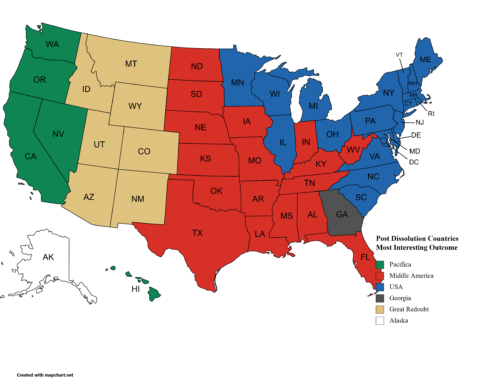Here is a typical situation when a leadership and organizational consultant goes into a new business to help them out. The consultant has a discussion with the client trying to get to the bottom of several issues in the front office. There are multiple paths that needed exploring, but the consultant’s process tells him where to start. “Could I please see a copy of your organizational chart?” The client will often answer with something like: “We have four separate entities for business and tax purposes.” Which prompts: “Do you have yourselves organized by an org chart?” “No.”
So the consultant tries tried a different line, closely related to the first. “Can I see your staff meeting slides?”
“Slides?”
“Yes, slides. Or whatever format you use to run your staff meetings.”
“We don’t have any.”
“So how do your weekly staff meetings go?”
“Actually, terribly. Nobody is happy. The principals don’t always even show up.”
“So what do you think might happen if we offered you a very small deck of slides to guide your staff meetings?” the consultant asks. The CEO replies that his principles probably would object because they wouldn’t want an outsider to dictate how they run their meetings and business.
Man, if there’s one thing a strong and vocal segment of business and government leaders love to hate, its talk of process. They are the ones who rail against constraining processes and checklists that take away their creativity and initiative. They don’t want someone who wrote procedures in a sterile room far away some months or years ago telling them how to perform a function in the heat of the operation.
I was one of those guys…30 years ago.
I was wrong then. Those guys are wrong now.
Nobody is taking away anyone’s initiative and right to assess their situation and make the tactical decisions to fix their problems. I’m talking about the importance of developing and following transparent, required procedures for all recurring tasks in your organization from strategic decision-making to maintenance of your physical plant.
Any objective look at human endeavor will show that for the most important tasks, there is a checklist. Who would want to get on an airplane if you even suspected that your crew said “I’ve been flying for years. I don’t need any checklist to tell me how to start and fly a plane.”You would want your pilots and maintainers to have followed well-known and detailed checklists to ensure your safety.
Whether it is miners checking equipment one piece at a time before going down the shaft, to pilots reading off checklist items one at a time while performing the task, to pastry chefs following a precise recipe down to the gram of ingredients, to thoroughbred breeders following a specific hygiene protocol in the breeding shed, recurring tasks ought to be performed following best practices and procedures developed over time through a deliberate melding of experience and thinking.
Likewise, any reading of history in pretty much any endeavor will show that the greatest in their fields were process people at core. The genius comes in when the leader follows procedure and takes advantage of brilliance in the small situations. The Plantagenet King Henry II transformed kingship from arbitrary pillaging to promising to uphold his responsibility (rather than privilege) and commitment to legal procedure. When Nick Saban is asked about the key to his long-term success as head football coach at Alabama, he doesn’t hesitate to say it is his process. From the pre-season camp to the weekly practice schedule to the pregame meal, everything the coaches, players, and staff do is driven by a consistent process.
The greatest chefs and restaurateurs know that there is far more to success than cooking a great sauce. There is a daily process of receiving the food early in the morning, the prep chef readying the meals prior to the main service, the manager constantly updating the inventory for orders and ensuring tables are full. Even in the world of high end strategic planning, there is a detailed process that melds art and science to achieve a product well worth the price.
When we go to visit clients and partners, I always ask for a written list of what the client thinks are the most important tasks they perform on a recurrent basis. No rush. Then I ask to see the checklists or procedures for each of those tasks. I don’t look them over to critique the checklists. I’m initially only interested in whether they have them. If not, then we gather the experts and write them together.
If you are a banker, you produce your procedural paper trail when the auditors come. If you’re a safety chief, you routinely check your confined spaces log and ensure proper training for those entering the space. No matter what your line of business, following established procedures protects you when someone questions your outcomes. Documenting your procedures and taking it a step farther by evaluating your people on the performance of their tasks on a regular basis puts you in the small category of serious players. these are the businesses or agencies that people want to work for and inspectors give the benefit of the doubt in the rare times of trouble.
As I mentioned above, following procedures does not remove your originality and opportunities for brilliance. Although Nick Saban diligently follows a weekly schedule, the game situations call for decisions in the minute. Likewise, if you run a large manufacturing plant, you’re steeped in process. But you still have the leeway to decide when to have training and who to call in to conduct it. If you run a beverage company, you have specific processes to receive your raw materials and develop your product, but you still use your leadership skills in determining if and when to develop a new product.
Embrace the importance of process. It can only benefit you. If you need help, call us. We’d be happy to walk you through the process.






Leave A Comment